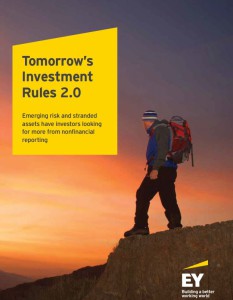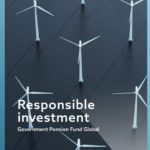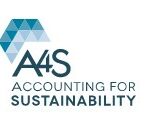
Institutional investors say businesses need to provide them with non-financial information that outlines visible, measurable risks to the company’s performance or risk losing their potential investment. The finding comes from the 2015 annual survey by EY’s Climate Change and Sustainability Services, Tomorrow’s Investment Rules 2.0, the second consecutive survey looking at institutional investors’ views about the use of non-financial information in making investment decisions.
- 64% of investors say businesses do not adequately disclose non-financial risks.
- Nearly half of investors would rule out investment based on certain non-financial disclosures.
- Use of integrated reports by investors is on the rise in all geographic segments.
The global survey of more than 200 institutional investors found that non-financial factors, including those related to environmental, social and governance (ESG) risks, influence business operations and investors’ decisions. Notably, 64% report that companies are not adequately disclosing ESG risk, with 39% calling for companies to disclose information more fully in the future.
The implications for publicly traded companies are significant. Thirty-six percent of institutional investors said they divested holdings of a company’s shares in the last year due to the risk of stranded assets,1 while another 27% expect to monitor this risk closely in the future.
Juan Costa Climent, EY Global Leader, Climate Change and Sustainability Services, says:
“Companies providing non-financial information often come at it from the perspective of the customer and the regulator, and not investors. Investors clearly want this information to focus on how these risks affect a firm’s value rather than seeing it simply from the perspective of managing risk.”
Investor strategy
Institutional investors also no longer regard ESG risks as specific to energy and extraction industries, as 62% of investors consider non-financial data to be relevant to all sectors today, compared to 34% of respondents from the 2014 survey.
The survey also outlines top ESG concerns for institutional investors when making investment decisions. If a company were to show a risk or history of poor environmental performance, 76% would reconsider their investment. If a company was not addressing risks in its supply chain 73% say they would reconsider their investment. Forty-one percent would rule out an investment immediately if a company showed the absence of a clear strategy to create value in the short, medium and long term.
Despite these calls for better information, just 24% say that non-financial performance frequently plays a pivotal role in their investment decisions. For some respondents, the reason for this relates to the information itself. Twenty-seven percent say that their investment decisions have not been affected by non-financial reporting in the last year because they find it difficult to determine how material the information is to financial performance due to the fact that the information is not verified or is difficult to compare across regions or countries.
“Investor expectations appear to be growing more holistic and sophisticated,” says Costa Climent. “They not only want non-financial information that provides a forward-looking view into a company’s performance, risk and value, but they also want it to be comparable across sectors and regions, while reflecting a seal of approval at board level.”
Regional response
By region, institutional investors in Europe were most likely to have an investment decision affected by non-financial information, followed by Latin America, a region that has previously showed the least interest in non-financial reporting.
The survey also found that 37% of institutional investors are using structured, methodical evaluation of companies’ environmental and social impact statements and disclosures, up from 20% of those surveyed last year. Other notable changes to investor requirements year-on-year relate to the importance of integrated reporting. Seventy-one percent consider integrated reporting as essential or important when making investment decisions, compared to 61% in the 2014 survey.
Institutional investors in Europe continue to lead in incorporating ESG risks into their decision-making, with 42% using a structured, methodical approach when evaluating ESG information compared to 41% of investors in Asia, 35% in the United States and Canada, and 30% in Australia. Seventy-one percent of investors worldwide say integrated reporting is essential or important for accessing non-financial information about a company, though the first choice for investors to find relevant information is company annual reports, at 80%. Fifty-nine percent of institutional investors consider a firm’s corporate social responsibility (CSR) report essential or important to investment decisions.
“Investors globally are clearly finding that integrated reporting and CSR reports are an effective way to bridge the information gap as companies more effectively articulate how environmental, social and governance risks are impacting business models and strategies for growing long-term capital value,” says Costa Climent.



